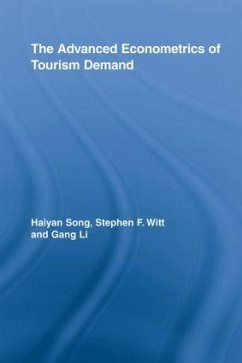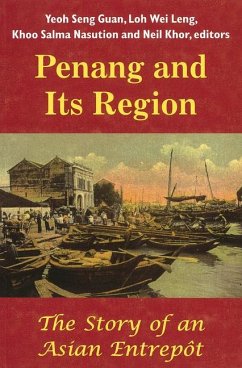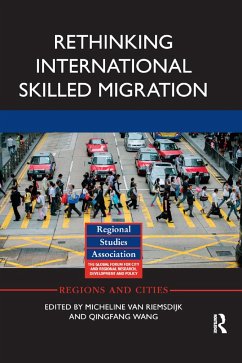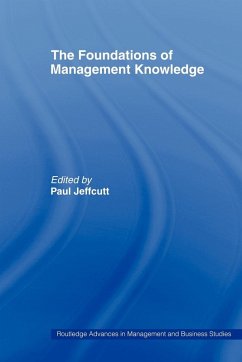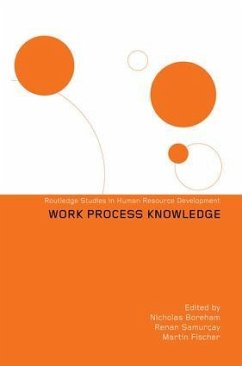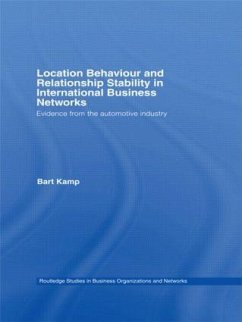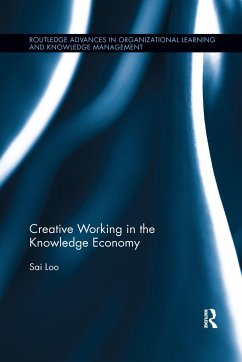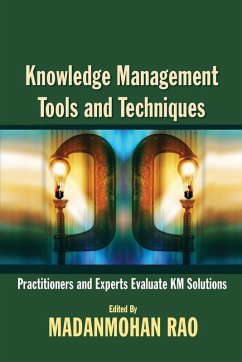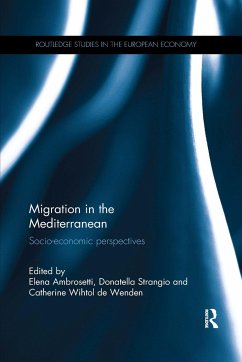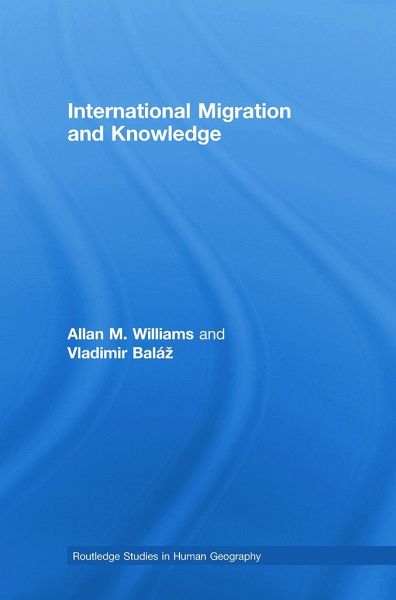
International Migration and Knowledge
Versandkostenfrei!
Versandfertig in 1-2 Wochen
42,99 €
inkl. MwSt.
Weitere Ausgaben:

PAYBACK Punkte
21 °P sammeln!
Two unconnected but important recent academic and policy debates have focussed on the idea of the knowledge-based economy and the economic consequences of increasing international migration. This book challenges pre-conceived views on the debates and argues the need to understand that all migrants are potentially knowledge carriers and learners, and that they play an essential role in the globalization of knowledge transactions. Deconstructing the concept of knowledge, and demonstrating how tacit knowledge is in fact an amalgam of encultured and embrained/embodied forms of knowledge this book ...
Two unconnected but important recent academic and policy debates have focussed on the idea of the knowledge-based economy and the economic consequences of increasing international migration. This book challenges pre-conceived views on the debates and argues the need to understand that all migrants are potentially knowledge carriers and learners, and that they play an essential role in the globalization of knowledge transactions. Deconstructing the concept of knowledge, and demonstrating how tacit knowledge is in fact an amalgam of encultured and embrained/embodied forms of knowledge this book considers how international migration has profound consequences, analysed, first, in terms of the economic and immigration strategies of national and regional bodies. And, secondly, the authors explore how the 'diversity dividend' of migration is captured by firms through their management strategies, and by individuals through increasingly boundaryless careers, continuous learning and transnational working lives. This research is a highly original contribution which provides the first overview of one of the most dynamic forces for change in the globalising economy. It will challenge migration researchers and students to engage with the management and learning literatures, and it will challenge management and economic policy analysts to think through the role of international migration. As such it will contribute to teaching and research in a range of social science disciplines, as well as to those involved in policy arenas ensuring that firms and all migrants engage in mutual learning and knowledge sharing.





